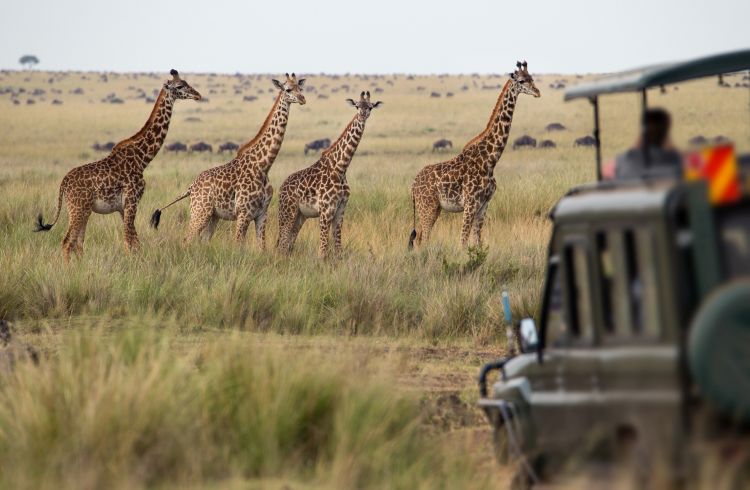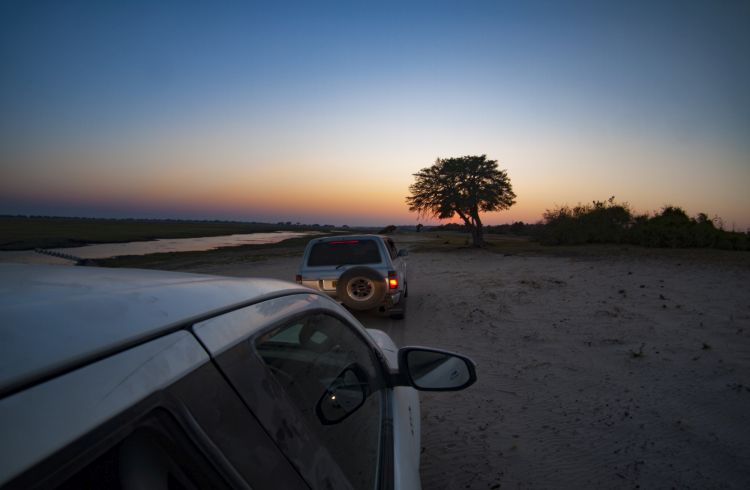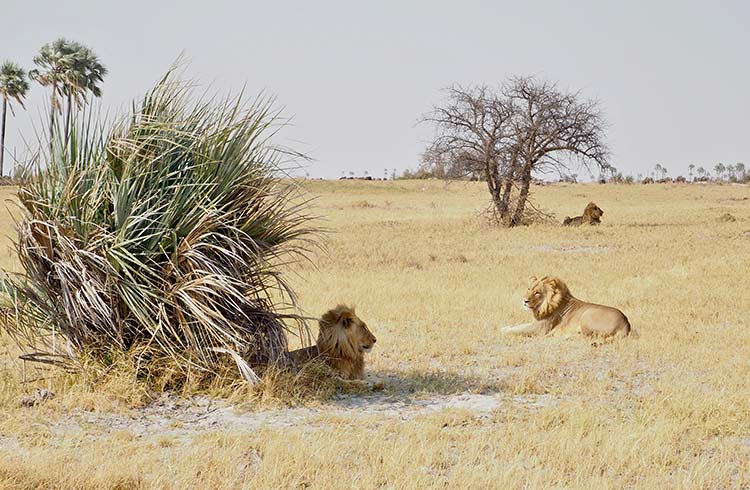How Travelers Can Stay Safe on Safari in Botswana
Botswana is vastly different from the controlled safari experiences you might find in South Africa. It's the true African wilderness – which comes with both risks and rewards.
 Photo © Getty Images/mantaphoto
Photo © Getty Images/mantaphoto
If you want to see vast herds of elephants and wetlands teeming with bird life, and don’t want to be surrounded by other safari vehicles when you spot a rhino or leopard, then Botswana is for you.
What makes a Botswana safari different?
Botswana is considered a luxury destination, and for good reason. To keep tourism numbers low and the environment well looked after, most lodges are five-star and remote. Here’s why a Botswana safari is unique.
- You can't just buy a ticket and enter the game parks in Botswana. Most locations involve a flight or very long drives to reach the game lodges. Guides will arrive early to check the runways for elephants and lions – no joke.
- Reserves in Botswana are unfenced, meaning animals are free to roam – across the country, and maybe into your camp. It's not uncommon for guests in safari lodges to get the occasional hippo or lion at their front door.
- The Okavango Delta, one of the world’s largest inland deltas, offers a one-of-a-kind wildlife viewing experience: a mokoro (canoe) safari. These silent boats allow close-up views of wildlife – but they are also at risk of being overturned by a hippo or crocodile.
Hippos are one of the world’s most dangerous animals, but they don't charge because they’re aggressive – they do so because they feel threatened. Never get between a hippo and its source of food or water. During the day it’s rare to find them away from water, but at night they like to feed on grass, often around lodges.
Guards and guides will walk through lodges at night to scare off any hippos or other wildlife who try and visit.
Tips for staying safe on safari in Botswana
Before you set out to see animals in Botswana, from Moremi to Savuti or Chobe, there are a few rules to keep you safe and confident on safari.
- Do not run or turn your back if you are confronted by a wild animal. The only animals that run away in Africa are the prey, and predators – especially lions – will chase you if you run.
- Mokoro guides are very experienced and will stick to shallow waters and narrow channels to avoid hippos, but it’s still important to follow any instructions they give you.
- Be sure to use sunscreen, wear a sun hat, and stay hydrated.
- Animals tend to ignore safari vehicles unless the people in the vehicle start making loud noises and sudden movements. Keep still and quiet so you don’t scare the animal away, make it angry, or attract too much interest.
- Always listen to your guides – they will save your life.
Related articles
Simple and flexible travel insurance
You can buy at home or while traveling, and claim online from anywhere in the world. With 150+ adventure activities covered and 24/7 emergency assistance.
Get a quote

No Comments